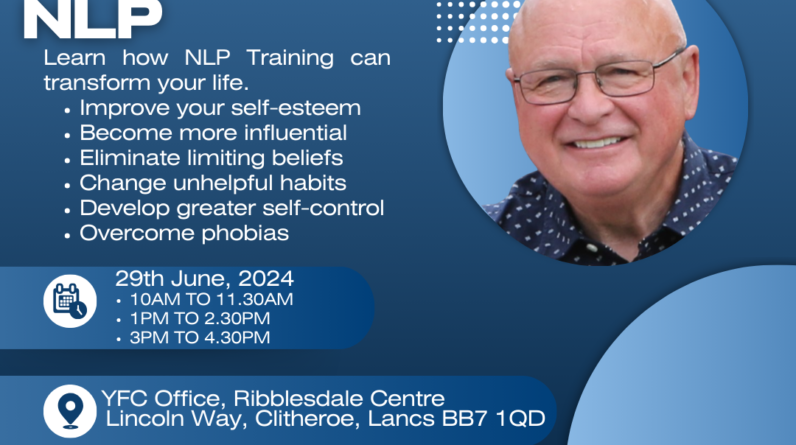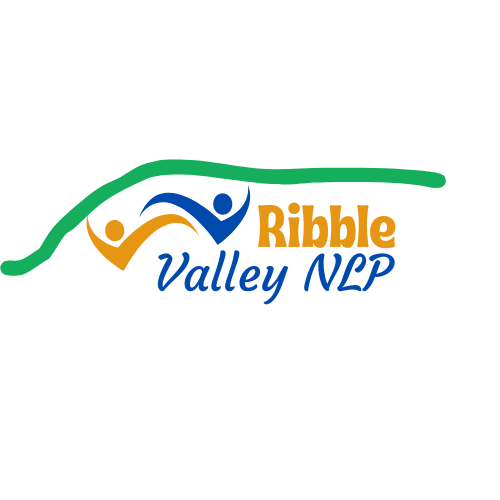
Neuro-Linguistic Programming (NLP)
Definition of Neuro-Linguistic Programming
Neuro-Linguistic Programming, commonly known as NLP, is a psychological approach that explores the relationship between thoughts, language, and behaviour. It is based on the belief that we can achieve personal and professional success by understanding and changing the patterns of our thinking and communication.
Principles of NLP
NLP is founded on several fundamental principles. Firstly, it emphasizes the idea that individuals have the resources and capabilities within themselves to create positive change. NLP also focuses on the importance of effective communication and building rapport with others. Additionally, NLP recognizes that everyone’s perception of the world is subjective and influenced by their own experiences and beliefs.
How NLP can enhance personal and professional development
NLP offers a range of tools and techniques that can enhance personal and professional development. By learning NLP, individuals can better understand their thoughts, emotions, and behaviours, allowing them to make positive changes in their lives. NLP techniques can be applied to improve communication skills, enhance relationships, set and achieve goals, build confidence, and overcome limiting beliefs. NLP also provides individuals with the skills to effectively navigate challenges, improve leadership capabilities, and achieve success in their personal and professional pursuits.
NLP for Personal Growth
Using NLP for self-improvement
NLP provides individuals with powerful tools and techniques for self-improvement. By applying NLP techniques such as visualization, goal setting, and reframing, individuals can enhance their mindset, develop better self-awareness, and cultivate positive habits. NLP can help individuals overcome limiting beliefs, manage emotions, and create a positive and empowering mindset for personal growth.
Goal setting with NLP

NLP offers a structured approach to goal setting beyond traditional goal-setting methods. By utilizing NLP techniques, individuals can clarify their goals, create a compelling vision, and develop strategies to achieve their desired outcomes. NLP helps individuals align their conscious and subconscious minds towards their goals, increasing motivation and the likelihood of success.
Building confidence and resilience through NLP techniques
NLP techniques can significantly contribute to building confidence and resilience. Through anchoring, reframing, and modelling, individuals can develop a positive self-image, overcome self-doubt, and build resilience in the face of challenges. NLP empowers individuals to manage their mindset and emotions, allowing them to approach life and bounce back from setbacks confidently.
NLP for Effective Communication
Improving communication skills with NLP
NLP provides valuable tools and techniques for improving communication skills. By understanding the NLP communication model and learning techniques such as rapport building, non-verbal communication analysis, and language patterns, individuals can enhance their ability to convey their thoughts, ideas, and emotions effectively. NLP also helps individuals develop active listening skills, deepening their understanding of others and facilitating meaningful connections.
Understanding non-verbal cues through NLP
Non-verbal cues play a crucial role in communication, and NLP can help individuals understand and interpret these cues more effectively. By learning to observe and decode body language, facial expressions, and tonality, individuals can gain insights into the underlying emotions, thoughts, and intentions of others. This understanding enables individuals to adapt their communication style, establish rapport, and create an environment of trust.
Building rapport and establishing a connection using NLP techniques
Rapport is the foundation of effective communication and building connections with others. NLP techniques provide individuals with valuable tools for establishing rapport and deepening connections. Individuals can create subconscious alignment and connectivity with others by mirroring body language, matching language patterns, and adopting similar tonality. These techniques help foster meaningful relationships, build trust, and improve collaboration.
NLP for Business Success

Applying NLP techniques in the business world
NLP techniques have proven highly valuable in business, enhancing productivity, leadership effectiveness, and overall success. By utilizing NLP tools such as goal setting, visualization, and effective communication techniques, individuals can set clear objectives, motivate teams, and drive results. NLP also enables individuals to develop influential leadership styles, adapt to change, and effectively manage conflicts.
Enhancing leadership skills with NLP
NLP offers valuable resources and techniques for enhancing leadership skills. Leaders can inspire and motivate their teams towards success by learning to understand and influence the mindset and behaviour of themselves and others. NLP techniques help leaders build rapport, communicate goals effectively, and create a positive and empowering work culture.
Negotiation and persuasion strategies using NLP
NLP techniques provide individuals with powerful strategies for negotiation and persuasion. By understanding the language patterns and sensory preferences of others, individuals can tailor their communication to influence and persuade effectively. NLP techniques also help individuals uncover underlying motivations and needs, enabling them to negotiate win-win outcomes and build mutually beneficial relationships.
NLP for Therapy and Counseling

NLP as a therapeutic approach
NLP offers a unique and practical approach to therapy and counselling. NLP techniques focus on exploring and changing thinking, communication, and behaviour patterns to achieve positive outcomes. By guiding individuals towards self-awareness and helping them reframe their experiences, NLP can assist in overcoming limiting beliefs, managing emotions, and improving overall well-being.
Applying NLP in counselling sessions
In counselling sessions, NLP techniques can be utilized to facilitate transformative change. Techniques such as timeline therapy, parts integration, and reframing provide individuals with tools to access and change their subconscious patterns, leading to personal growth and resolution of underlying issues. NLP approaches in counselling can help individuals gain new perspectives, develop coping strategies, and achieve lasting change.
Overcoming limiting beliefs through NLP techniques
Limiting beliefs can hold individuals back from realizing their full potential. NLP techniques offer practical strategies for recognizing and overcoming limiting beliefs. By utilizing techniques such as belief change processes, visualization, and anchoring, individuals can rewire their thinking patterns and replace limiting beliefs with empowering ones. NLP allows individuals to break free from self-imposed limitations and embrace their true capabilities.
Ethical Considerations in NLP
The importance of ethical practices in NLP
Ethical practices are crucial when using NLP techniques. NLP practitioners must prioritize the well-being and autonomy of their clients, ensuring that the methods used are appropriate and empowering. Ethical practices also involve obtaining informed consent, maintaining confidentiality, and respecting the boundaries and values of clients.
Ensuring client safety and well-being in NLP sessions
Client safety and well-being should be the top priority in NLP sessions. NLP practitioners must create a safe and supportive environment where clients feel comfortable and empowered to explore their thoughts, emotions, and experiences. Practitioners should be aware of potential risks or emotional triggers and handle them responsibly and ethically.
Professional standards and guidelines for NLP practitioners
Professional standards and guidelines exist to ensure that NLP practitioners uphold ethical practices. Organizations such as the International Neuro-Linguistic Programming Trainers Association (INLPTA) provide certification and accreditation for NLP practitioners who adhere to high professional standards. These standards include ongoing professional development, ethical behaviour, and a commitment to clients’ well-being.
NLP Practitioner Certification
Requirements for NLP Practitioner certification
Individuals must complete a recognized NLP Practitioner training program to obtain an NLP Practitioner certification certification. These training programs typically involve a combination of theoretical learning, practical application, and supervised practice. To receive certification, individuals must demonstrate competency in NLP techniques, principles, and ethical practices.
Training programs and courses for NLP Practitioner certification
Numerous training programs and courses are available for individuals seeking NLP Practitioner certification. These programs vary in length, content, and delivery methods. Choosing a training program accredited by reputable NLP associations, such as INLPTA, is advisable to ensure that the certification holds credibility and meets professional standards.
Career Opportunities for NLP Practitioners
NLP Practitioners have a range of career opportunities available to them. They can work as independent coaches, consultants, or trainers, helping individuals and organizations achieve their goals. NLP Practitioners may also find employment in counselling, therapy, sales, marketing, and leadership development. The knowledge and skills gained through NLP Practitioner certification can open doors to a fulfilling and impactful career where individuals can make a positive difference in the lives of others.

